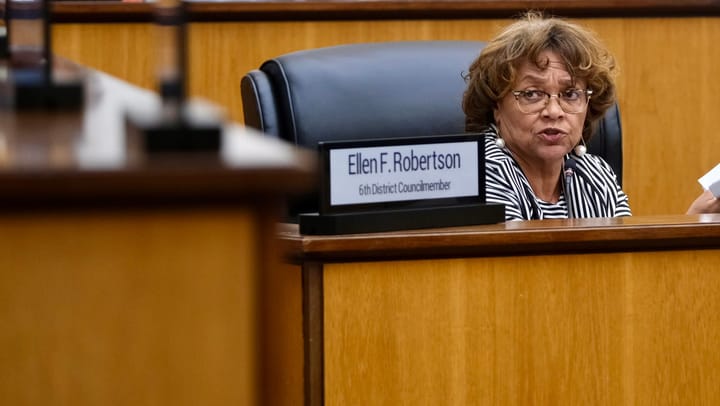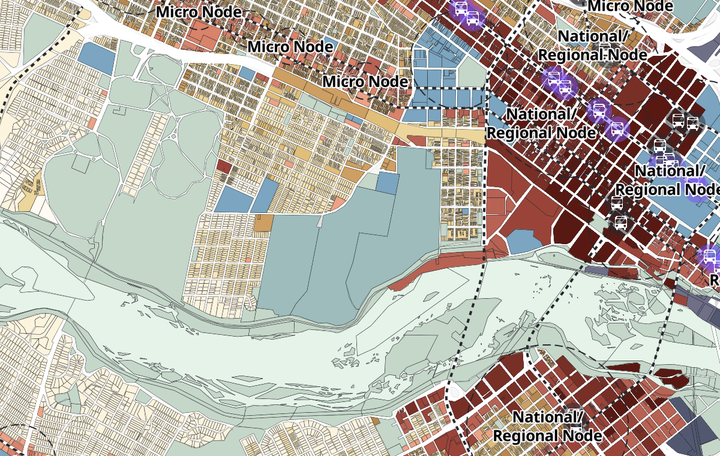Richmond’s interim CAO initially said erroneous real estate tax bills were sent on purpose

As confused Richmond residents received real estate tax bills last week that the city usually sends to mortgage lenders who handle the payments, Interim Chief Administrative Officer Sabrina Joy-Hogg initially told the City Council it was a deliberate move to promote transparency.
“Finance has provided real estate tax bills to all residents, which adds transparency to taxes being paid,” Joy-Hogg told the council in a text message Friday night. “These bills are not wrong.”
Joy-Hogg — who served in a top City Hall finance position before becoming interim CAO early this year — then indicated the bills had been sent to both mortgage companies and homeowners.
“Sending the taxpayer a copy of the bill ensures they are aware of what is being paid,” said Joy-Hogg. “We believe this to be a good financial practice and further promotes the transparency initiatives of the city.”
The next day, Mayor Danny Avula said the 33,000 bills that surprised many homeowners were, in fact, an error caused by faulty data. One that’s added more confusion and annoyance to the already not-so-pleasant process of paying taxes.
The city later said that, contrary to Joy-Hogg’s initial explanation, the bills were not sent to mortgage lenders as they normally would be. Avula Chief of Staff Lawson Wijesooriya also told the council the bill homeowners received unexpectedly was a “copy” of one also being sent to mortgage lenders.
On Tuesday evening, the city issued a second news release saying officials are “still working” to get the bills to mortgage lenders. Residents who don’t usually receive real estate tax bills can do “nothing,” the release said, but can contact their lenders to verify their bill has been or will be paid.
The Richmonder is powered by your donations. For just $9.99 a month, you can join the 1,000+ donors who are keeping quality local journalism alive in Richmond.
In response to questions from The Richmonder, Joy-Hogg acknowledged her initial message to the council was incorrect.
“I was attempting to give council a quick answer as I navigated the issue,” Joy-Hogg said. “While the city is working towards transparency and increased standardization around processes, the 2025 Second Half Real Estate Tax Bill mailing was not a planned change, and I apologize for any confusion my statement caused. We are actively working to send bills to lenders, as is the typical process, and to discover the source of the mistake that led to the mailing of some taxpayers directly.”
The statement does not explain what gave Joy-Hogg the idea the bills were a positive move by the city rather than a mistake.
After campaigning on improving City Hall, the real estate tax problem has again put Avula in the position of explaining another error creating difficulty for residents.
“I have directed the Department of Finance to revise its [standard operating procedures] and am personally spending time with staff inside the Department of Finance to understand the breakdowns that occurred,” Avula said in the Tuesday release. “In addition, I plan to bring in an expert to support change management and improve communication to prevent this type of issue from happening again. Taxpayers were confused and frustrated, and I am committed to finding and fixing the problems within City Hall.”
For most residents with mortgages, money to cover city taxes is built into their monthly housing payments. Lenders calculate how much the homeowner will owe in taxes and adjust the monthly payments due accordingly.
When the city sends real estate tax bills twice a year, mortgage lenders typically pay those bills from escrow accounts they manage on behalf of the homeowner. Those accounts are filled over the course of year through the regular payments residents make on their homes.
That means the city’s error could lead homeowners to think they owe the city thousands of dollars by June 16 even though they’ve already paid that money to their mortgage company.
A recorded message on the city’s 311 customer service phone line says “please contact your lender for instructions on where to direct the invoice.”
“If you received a bill, your mortgage company did not,” the message said as of Tuesday evening.
When asked if the city is instructing residents to contact their lenders, spokesman Ross Catrow said “the city is addressing the root causes that led to mailing taxpayers directly.”
Despite the uncertainty around the situation, here’s what Richmonders can do to minimize the headache:
Don’t double pay
If you don’t normally pay real estate tax bills yourself, there’s no need to immediately pay the bill.
That could lead to a double payment, with the city getting tax money from both you and your lender.
If a double payment occurs, officials have said taxpayers will receive a credit, but can also request a refund. Given the city’s recent struggles with issuing tax rebate checks, there’s no guarantee that would be a smooth or easy process.
Don’t completely ignore the bill
City officials have encouraged homeowners to check with their mortgage lender to figure out what to do next and ensure the bills get paid on time.
It might be frustrating for taxpayers to feel they have to proactively resolve something that was the city’s fault, but it appears to be the safest way to avoid the possibility of penalties and late fees. Contacting your mortgage lender is particularly advised for residents who recently purchased a home, refinanced their mortgage or had their mortgage details change.
The city has said it intends to issue the bills to lenders. But it’s not clear when that will occur or if that would resolve the issue for every taxpayer who received a bill they don’t usually get.
Even residents who probably don’t need to pay should hang onto the bill, in case the lender needs the amount due or other specifics.
For those trying to avoid the hassle of contacting their lender, waiting a few days to see how things shake out is also an option. But be aware of the June 16 deadline.
If you normally pay, pay this one too
Homeowners who usually handle their own real estate tax bills should pay the bills as they do every year. That mostly applies to people who own their homes outright and don’t have a mortgage.
Some residents with mortgages might also have to pay the bill, officials have said, if there has been a change to their name, address or the details of their loan.
If you’re unsure which category you fall into, you can call 311 or contact your lender to figure out what you need to do.
Contact Reporter Graham Moomaw at gmoomaw@richmonder.org
The Richmonder is powered by your donations. For just $9.99 a month, you can join the 1,000+ donors who are keeping quality local journalism alive in Richmond.






